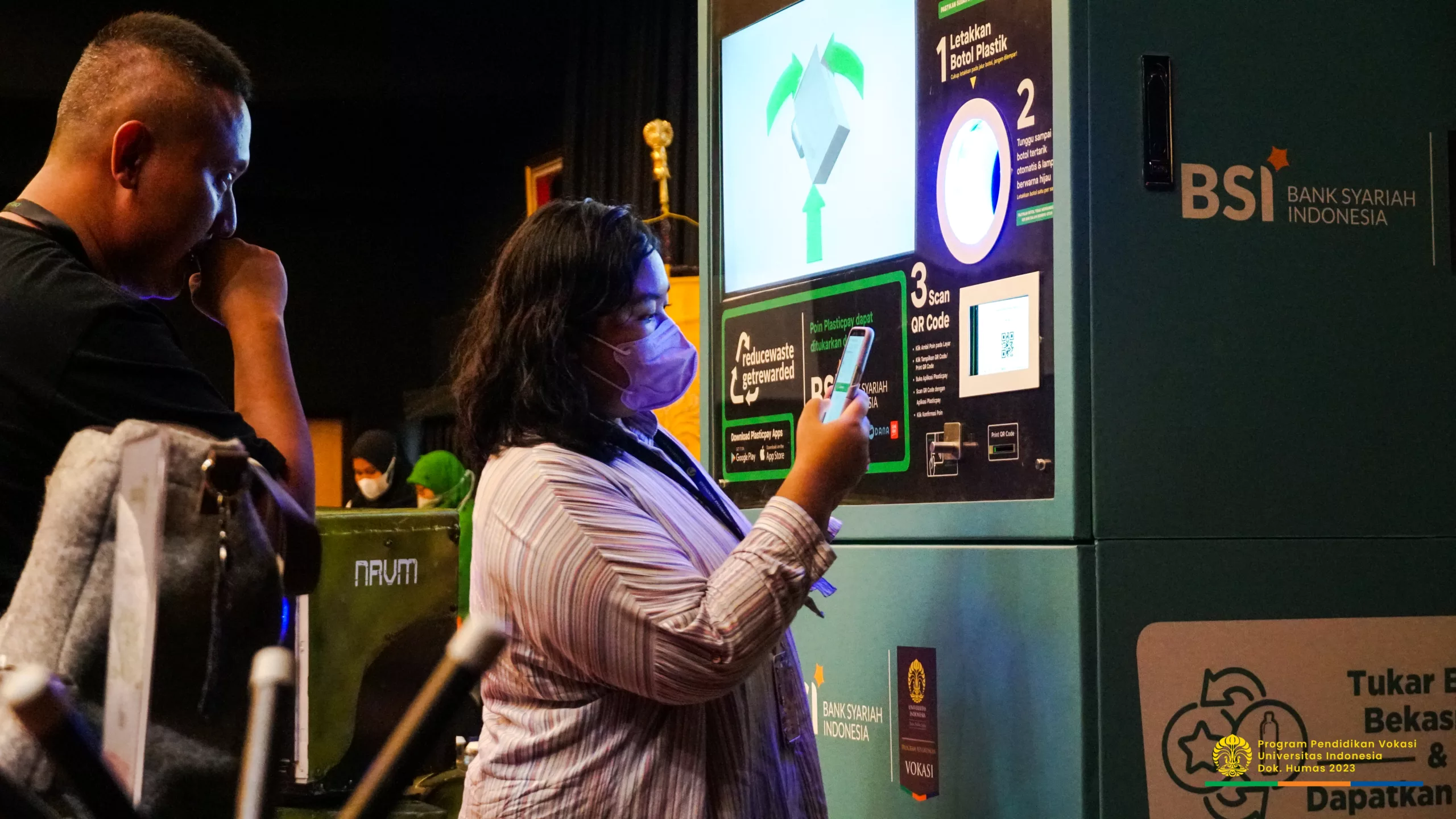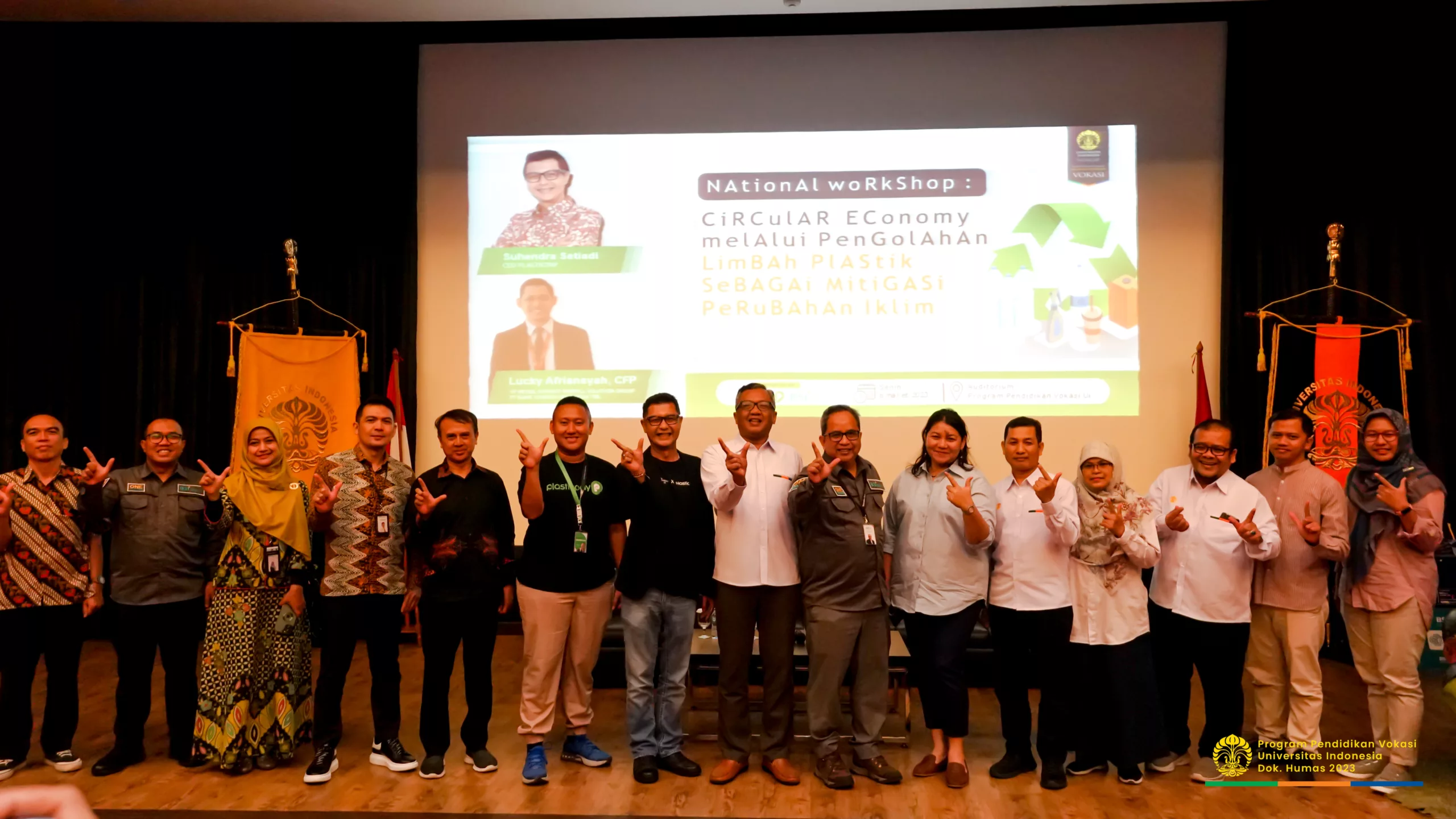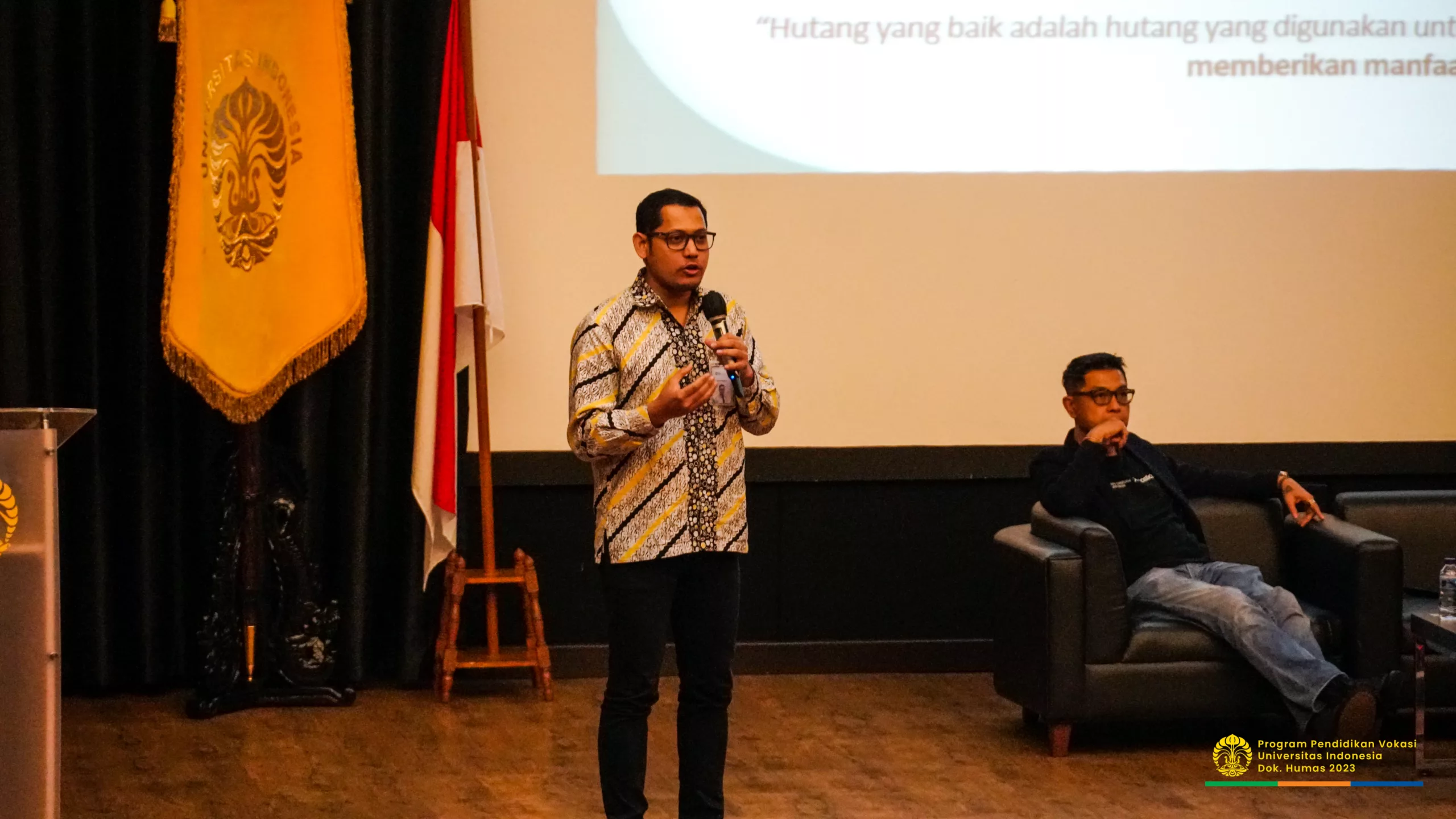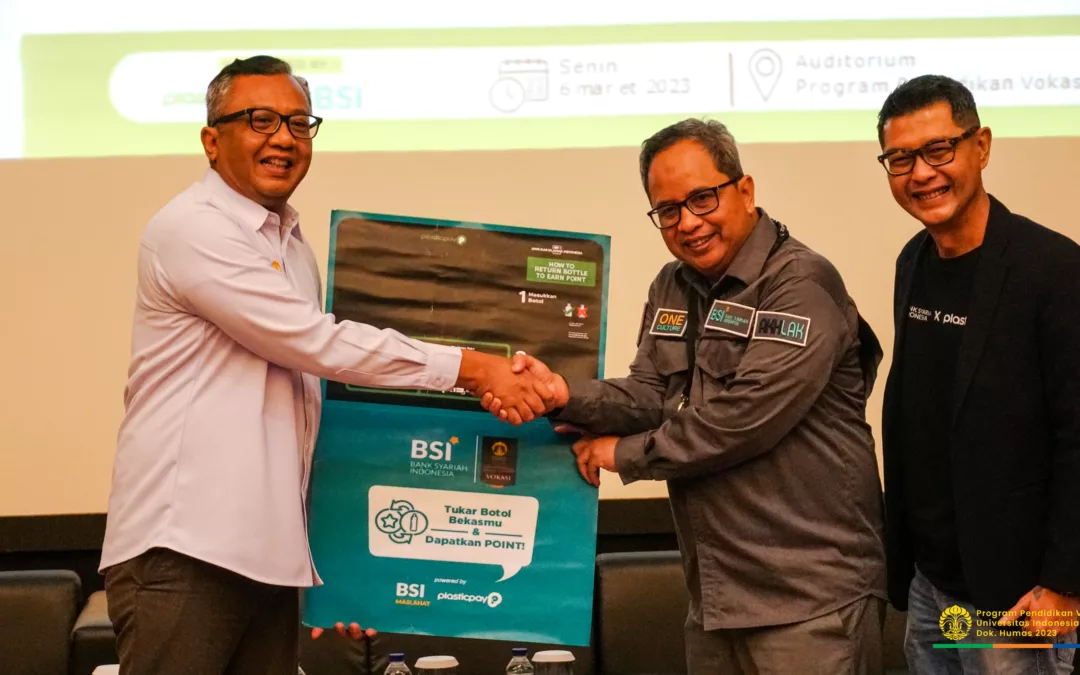Depok-Vocational Education Program, UniversitasIndonesia (UI) has just implemented a collaboration program with PT Plasticpay Teknologi Daurulang (Plasticpay) and Bank Syariah Indonesia (BSI) to support plastic waste management. The program was launched in conjunction with a workshop themed “Circular Economy through Plastic Waste Processing as Climate Change Mitigation”, which was held at the Auditorium of the UI Vocational Education Program, on March 6, 2023. CEO of PT Plasticpay Teknologi Daurulang, Suhendra Setiadi, and VP Retail Deposit & Payroll Solution Group of PT BSI, Lucky Afriansyah, also attended as speakers.
Director of the UI Vocational Education Program, Padang Wicaksono, S.E., Ph.D, said that the collaboration program carried out between UI Vocational with Plasticpay and BSI is a form of global sustainability support through the management of plastic waste. He said, “As a form of effort to encourage UI to become a green campus, we invite UI Vocational academics to consciously participate in plastic waste management.”
 (Photo: UI Vocational student trying to use RVM)
(Photo: UI Vocational student trying to use RVM)
In this activity, a symbolic handover of the Reverse Vending Machine (RVM) was also carried out Plasticpay which will be placed in the UI Vocational canteen. The RVM is one of the works of the nation’s children which was formed in collaboration between Plasticpay and BSI. The machine can process plastic bottle waste which will then be exchanged into points automatically.
On the same occasion, Suhendra delivered material on the circular economy through plastic waste management. “Indonesia is a country that produces the second largest plastic waste in the world. As many as 6.8 million plastic waste per year and we are still importing plastic waste,” he said.
 (Photo: Group photo in workshop activities)
(Photo: Group photo in workshop activities)
This prompted Plasticpay to create a solution in the form of a digital-based social behavioral modification platform that invites people to exchange plastic waste for points that can be exchanged. “We also provide applications and collection facilities for the community, public sector and private sector which invite all elements of society to collaborate in recycling,” said Suhendra.
Plasticpay creates a variety of products from waste collected through RVM which can be found throughout Greater Jakarta area. These products are produced by empowering women and SMEs with disabilities and are certified by the Global Recycled Standard & Ocean Bound Plastic Certification. Within the UI environment, the Vocational Education Program became a pioneer in inviting academics to be aware of and care about processing plastic bottle waste through the placement of RVM.
 (Photo: Lucky explains the importance of today’s financial digital literacy)
(Photo: Lucky explains the importance of today’s financial digital literacy)
Lucky also delivered material on the importance of digital financial literacy. He said, “Currently, the millennial generation is getting easier with increasingly sophisticated technology. Now, banking transactions can be done mobile and make it easier for customers and prospective customers. BSI also follows technological developments with various applications that can be used anytime and anywhere.”
In addition, BSI supports government programs to reduce waste by 70% by 2025 through collaborating to become a partner for Plasticpay in running RVM. Products produced from plastic bottle waste that are exchanged through RVM also vary, such as tote bags, pouchs, laptop bags, prayer mats, sandals, to shoes. All of these products are produced from 100% plastic waste.
“We hope that this collaboration program in the form of RVM can expand within UI, so that UI academics, especially students, can participate in reducing carbon emissions through managing plastic waste,” said Padang.


